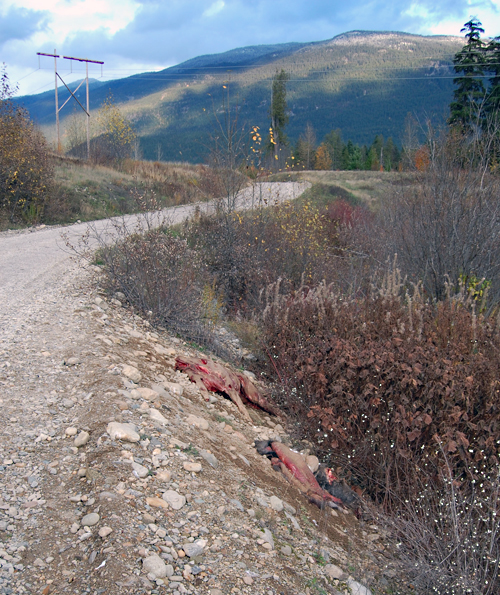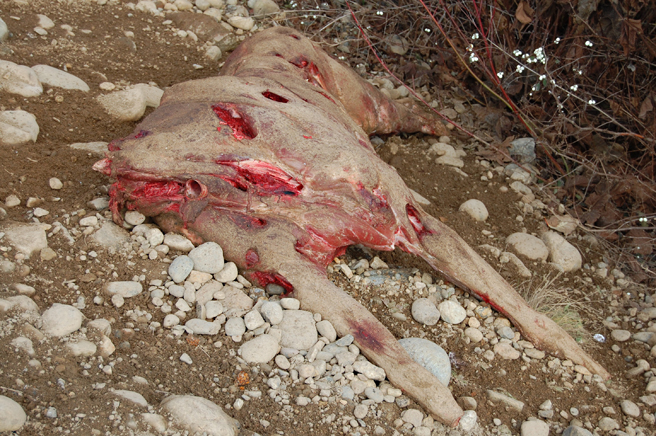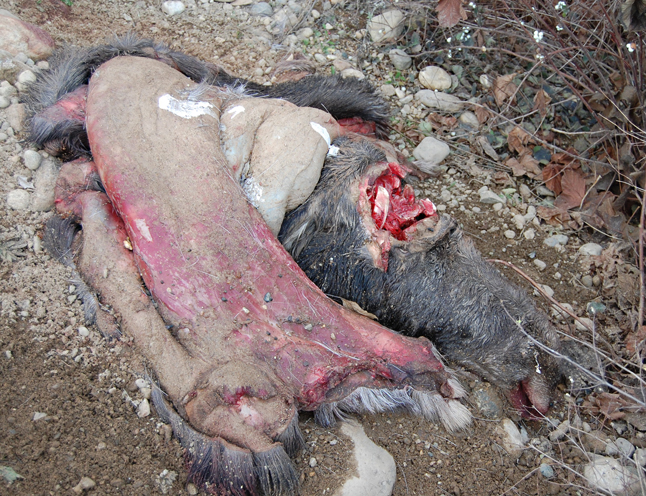
By David F. Rooney
The discovery by two different people of a moose carcass that was skinned and dressed and then, for reasons unknown, dumped right beside the Boulder Mountain road about 100 metres before the Jordan River Bridge is being investigated by the Conservation Service.
Conservation Officer Adam Christie said Monday he is investigating the dumping as a violation under the Wildlife Act.
It may not be the work of a poacher, he said, but dumping a carcass in an area frequented by people could attract dangerous predators and that is a violation. It is also an offence to kill an animal and then fail to remove the edible portions of the animal’s meat.
The Act says: “A person commits an offence if the person hunts wildlife and kills or injures that wildlife and fails to make every reasonable effort to… remove the edible portions of the carcass of game to the person’s normal dwelling place or to a meatcutter or the owner or operator of a cold storage plant.”
It also states that: “A person commits an offence if the person, with the intent of attracting dangerous wildlife to any land or premises, provides, leaves or places in, on or about the land or premises food, food waste or any other substance that could attract dangerous wildlife to the land or premises.”
My partner, Sue Leach, and I came across the carcass late Saturday afternoon as we were walking our dog, Kayah, along the road just past the second parking lot at the Boulder Mountain snowmobile area. While ravens had been at it, the carcass was very intact and seemed relatively fresh. Unsure whether it had been poached, I called the Conservation Service’s report-a-poacher line at 1-877-952-7277. The young woman in Victoria who took my report told me that mine was the second report received about this carcass. The first had been made on Oct. 21.
As you can see in the photos below, the carcass appears to be relatively intact. It was skinned and the head — minus the antlers, which had been hacked out — and hide were dumped a couple of metres from the meat. Whoever dumped this alongside the road created a potentially dangerous situation for passersby. What might have happened if a bear or cougar had claimed the carcass and was nearby when we, or someone else, passed within a few feet of it?
Christie said predators have now almost completely scavenged the carcass.
“There are just bones and a few tendons left now,” he said.





